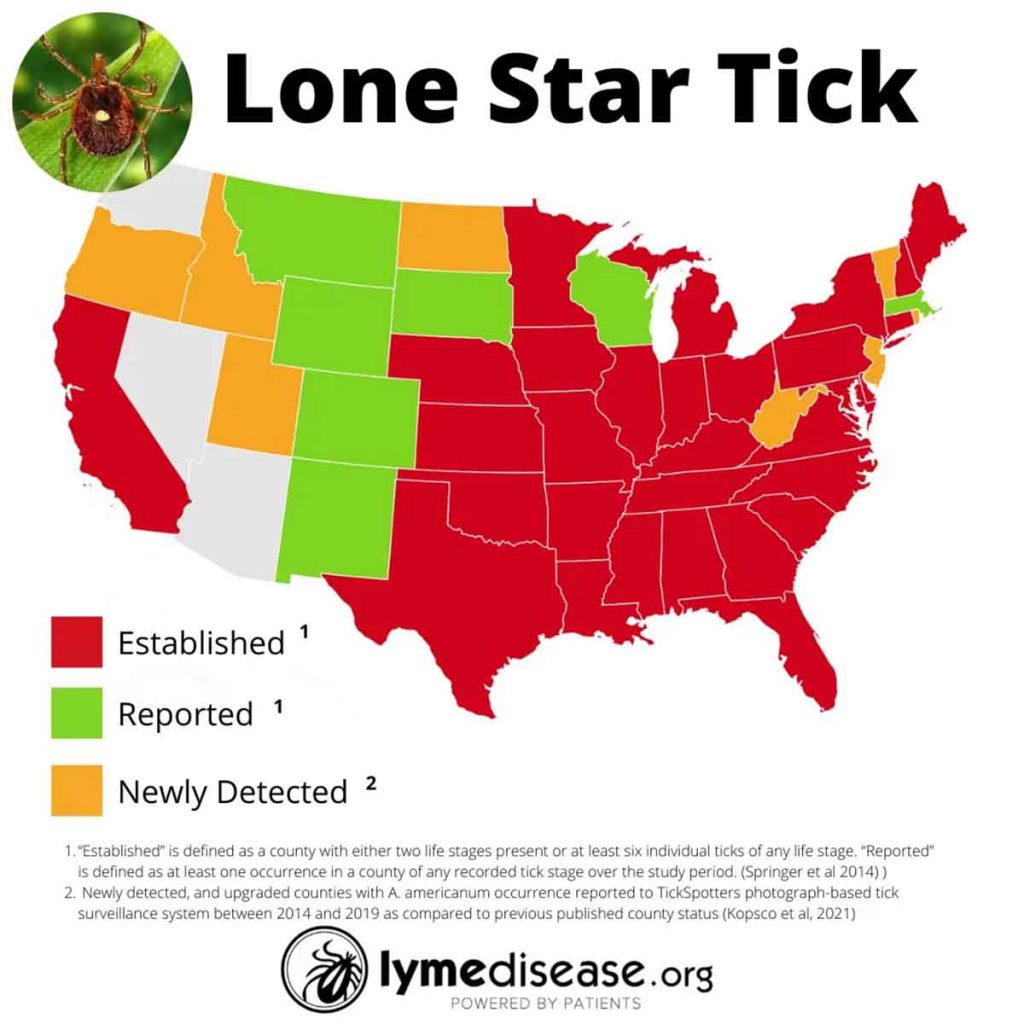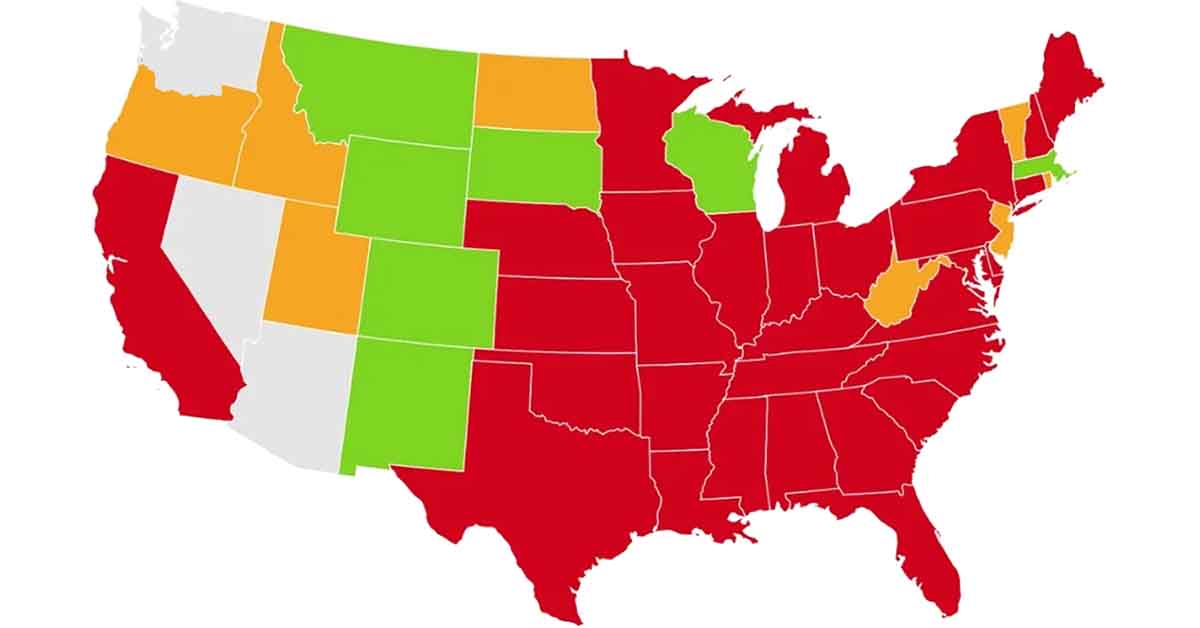The lone star tick, a pest previously confined to the southeast, is exploding across the continental US according to LymeDisease.org and the TickSpotters Surveillance Program. It spreads a host of tick-borne diseases including human ehrlichiosis, tularemia, Heartland virus, Bourbon virus, Southern tick-associated rash illness (STARI), and Rocky Mountain spotted fever.
To add insult to injury, the lone star is also associated with the development of alpha-gal syndrome, an illness where the victim develops an allergy to Galactose-alpha-1,3-galactose — aka alpha-gal — a sugar commonly found in red (mammalian) meat including beef, pork, venison, goat, bison, lamb, and mutton.
Alpha-gal syndrome triggers an immune system reaction that later produces mild to severe allergic reactions — including anaphylaxis — when a person with the syndrome eats red meat.
TickSpotters is a crowdsourced tick survey tool that sources information on tick encounters from around North America and provides users with tailored risk assessment reports. The purpose of the study is to track tick distributions, seasonal trends, and encounter factors for humans and pets. Each submission is verified by tick experts and the survey provides a current snapshot of tick populations throughout the country.
Here is the latest map as compiled by Tick Spotters and published by LymeDisease.Org:

As you can see, reports of the tick span the entirety of the continental US with the exception of Washington, Nevada, and Arizona.
We urge our readers to be vigilant and protect themselves and their pets from all ticks when out and about in wooded or grassy areas where ticks are generally found.
For more information on the lone star tick, alpha-gal syndrome, and how to protect yourself from ticks and tick-borne diseases, see our article entitled “Q&A: Everything You Need to Know About Alpha-gal Syndrome, the Meat Allergy You Can ‘Catch’“.
- LYME SCI: “Super-fast” lone star ticks are showing up in new places — LymeDisease.Org
- TickSpotters — University of Rhode Island
Q&A: Everything You Need to Know About Alpha-gal Syndrome, the Meat Allergy You Can ‘Catch’





